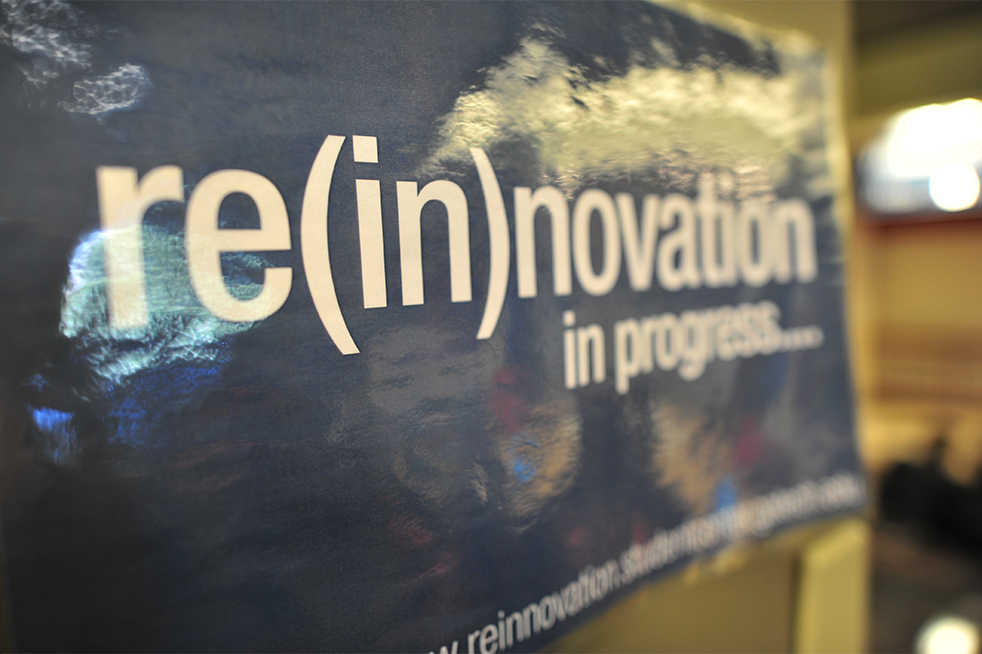A referendum on funding for the Student Center’s “Re(in)novation” effort was approved by both the Graduate Student Senate and Undergraduate House of Representatives on Jan. 20.
Bill number 16J116, which passed the Graduate Student Senate with 28 in favor, two against and passed the Undergraduate House of Representatives unanimously, allows the Student Center project to move ahead with a student body vote on mandatory fee increases to fund the expansion and rebranding.
The vote comes with two contingencies: first, that the fees will not exceed $85 per student per semester, and second that the fee not take effect until the new facilities open, ensuring that only students who stand to benefit from the project will be paying for it.
The student body vote on the fee is currently set to take place on March 9. Until then, Student Center personnel are planning to kick off a promotional campaign to educate students on why they should vote “yes.”
“We’re kicking off the start of the campaign on Jan. 22, and it’ll run until voting, which begins on March 9 and ends March 16,” said Lindsay Bryant, interim director of the Student Center and associate director of Student Center Programs. “[The campaign] is going to be LEGO-themed.
“The idea is ‘help build a better …’ and then a blank, so students can fill it in, whether it’s a better student organization space or a better lounge. But, visually, what people are going to see is LEGOs.
“What we’re doing within the Student Center is marketing around themes of what we want the new space to be. Every week, we’re going to be tabling and ‘teaser-ing’ to really get students to understand what it is they’re voting on. What I’m hoping with these really robust campaign efforts is that we’re really able to let the community know that they need to vote.”
The Re(in)novation campaign will also address the lack of concrete plans for exactly what the renovation will entail.
“It’s so important for the campus to understand that yes, there are lots of decisions that are yet to be made, but that those decisions will be made collectively,” said Rich Steele, senior director of Auxiliary Services. “I would say that students will have a primary voice as we move forward. We’ll seek out student voices and student opinions about what this ‘Campus Center’ should accomplish, because if we don’t listen well, we know it won’t be successful.”
The March referendum, however, is not about the specific content of the renovation.
“What we’re asking students in the resolution is this: Do they want a new Student Center, and do they want to pay a fee of at most $85 to build it? There aren’t many times when students are getting a new fee that they’ve voted on, so what we’re trying to do is get engaged with the campus,” Bryant said. “All the research we’ve done shows that we need a new building, but we really want to get students’ voices as well.
“I think it’s difficult when you’re voting and you don’t know exactly what’s going in there, but you have to look at it in that by voting yes, you’re saying we need a new student center. None of us know exactly what that’s going to look like, but you’re really voting to help build a better Tech.”
The student body vote will not, however, be the last step necessary to implement the fees and move forward with the project.
“Depending on the vote, we’ll take the fee proposal to the mandatory student fee committee, which is a campus committee,” Steele said. “That process would start in November of 2016, and the results of that process would be forwarded to the President for review before he potentially sends it to the Board of Regents [in April 2017].”
“There are still many hurdles to cross — not just convincing students that this would be a good investment of their money, but also to convince the Board of Regents that this is a fee students are willing to pay,” Steele said.
“We haven’t seen a new fee approved by the Board of Regents in a number of year because they’re committed to keeping the cost of education in Georgia as low as possible, which is understandable and something that we all support. But in order to move forward with the project of this size, we can’t ask the state for funds. Therefore, we have to find a way to pay for this from our own sources.”
The ballot will be online beginning March 9 for one week, concluding on March 16. Students will be able to vote either “yes,” in favor of a fee increase to fund the project or “no” against the fee increase. The specific language of the ballot will be released to the student body a few days prior to voting for review.
